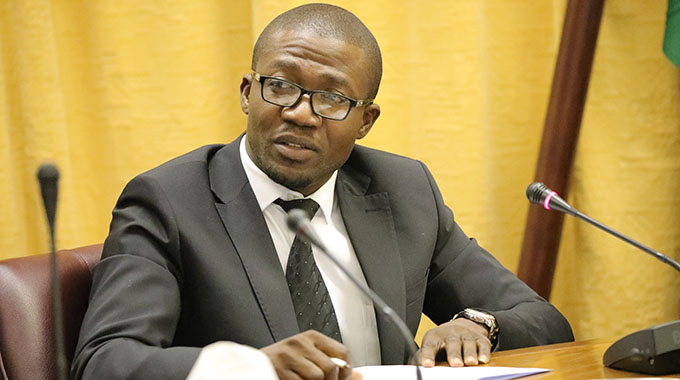Industry engages Govt

Africa Moyo and Bernard Yombayomba
GOVERNMENT is working towards resolving production bottlenecks in the manufacturing sector that have seen high prices for several products and shortages in some cases. This comes as industrialists engaged Industry and Commerce Minister Nqobizitha Mangaliso Ndlovu on Wednesday and submitted a report of the issues affecting their operations and possible interventions Government can introduce.
The Ministry of Industry and commerce yesterday engaged in a dialogue with a business delegation in Harare who gave a presentation of challenges that are impeding business operations.
Minister Ndlovu was, however, not answering his mobile phone when contacted to give details on the contents of the dossier.
However, Director of Research and Consumer Affairs in the Ministry of Industry and Commerce, Constance Zhanje, confirmed the meeting yesterday during a Confederation of Zimbabwe Industries (CZI) breakfast meeting in Harare.
Mrs Zhanje said the move by industrialists was commendable as dialogue was central to resolving the operational challenges dogging the industrialists.
“Yesterday (Wednesday) businesspeople met with the Minister of Industry and Commerce and presented challenges that they are facing in their businesses and the Minister has taken it up,” said Mrs Zhanje.
“We need to come up with an agreed position. Let us co-operate and come to an agreement on these matters (because) whether somebody is from Government or business, we are all consumers at the end of the day.
“What is important is to unite. Let us focus on what keeps us together than what keeps us apart. I want to emphasise that in 2018 we had a very good working relationship with the retailers’ association and the manufacturers; I think we have moved well because of open communication.”
Consumer Council of Zimbabwe (CCZ) deputy executive director Rose Mpofu, told delegates at yesterday’s function that dialogue was critical.
“Our highly qualified economists should seek ways to engage the Government and discuss matters that are significant to our economy.
“Why don’t we have economists’ associations who will speak with one voice and one mind to give proper advice to Government?
“We have industries that are ailing and we can produce if we engage economists and their contributions towards the economy,” said Mrs Mpofu.
Zimbabwe National Chamber of Commerce (ZNCC) chief executive officer Takunda Mugaga, told our sister paper The Sunday Mail Business this week that dialogue was important between Government, business and labour if the economy was to prosper.
Mr Mugaga’s sentiments came after Delta Corporation had unilaterally announced that it was planning to start selling its products in foreign currency to enable it to sweat assets and also pay off foreign creditors.
Delta, which makes alcoholic and non-alcoholic beverages, has since rescinded the decisions after Government reassured them of basic foreign currency.
Said Mr Mugaga: “I think if there is one thing we can’t underestimate in this country, it is the need for a social contract. We have been talking about the social contract – involving Government, business and labour – for a long time now.”
“It must not be activated after an incident like the one we had with Delta. We want to see a case where the stance by Delta should rather be solved within the social partners before it went public because it sends wrong signals when people now see signatures of companies and Government, agreeing on prices or such things.”
Economic commentator Langton Mabhanga, who is also the president of the National Business Council of Zimbabwe, has indicated that the current economic situation requires dialogue.
“The fiscal situation currently requires the Government to put together a multi-stakeholder’s think-tank that can work in the medium-term.
“This think-tank will engage in multiple consultations; we can come together in a more critical theatre on how we can muster issues, and create space where consultative dialogue is done in a very patriotic way and at the end, it will be the President’s dividend.
“We have everything investors need but the fundamental step is the immediate intervention of think-tanks who can either be under the OPC (Office of the President and Cabinet) or under the Ministry of Finance. This will restore investor confidence by providing a logical economic framework,” said Mr Mabhanga.










Comments